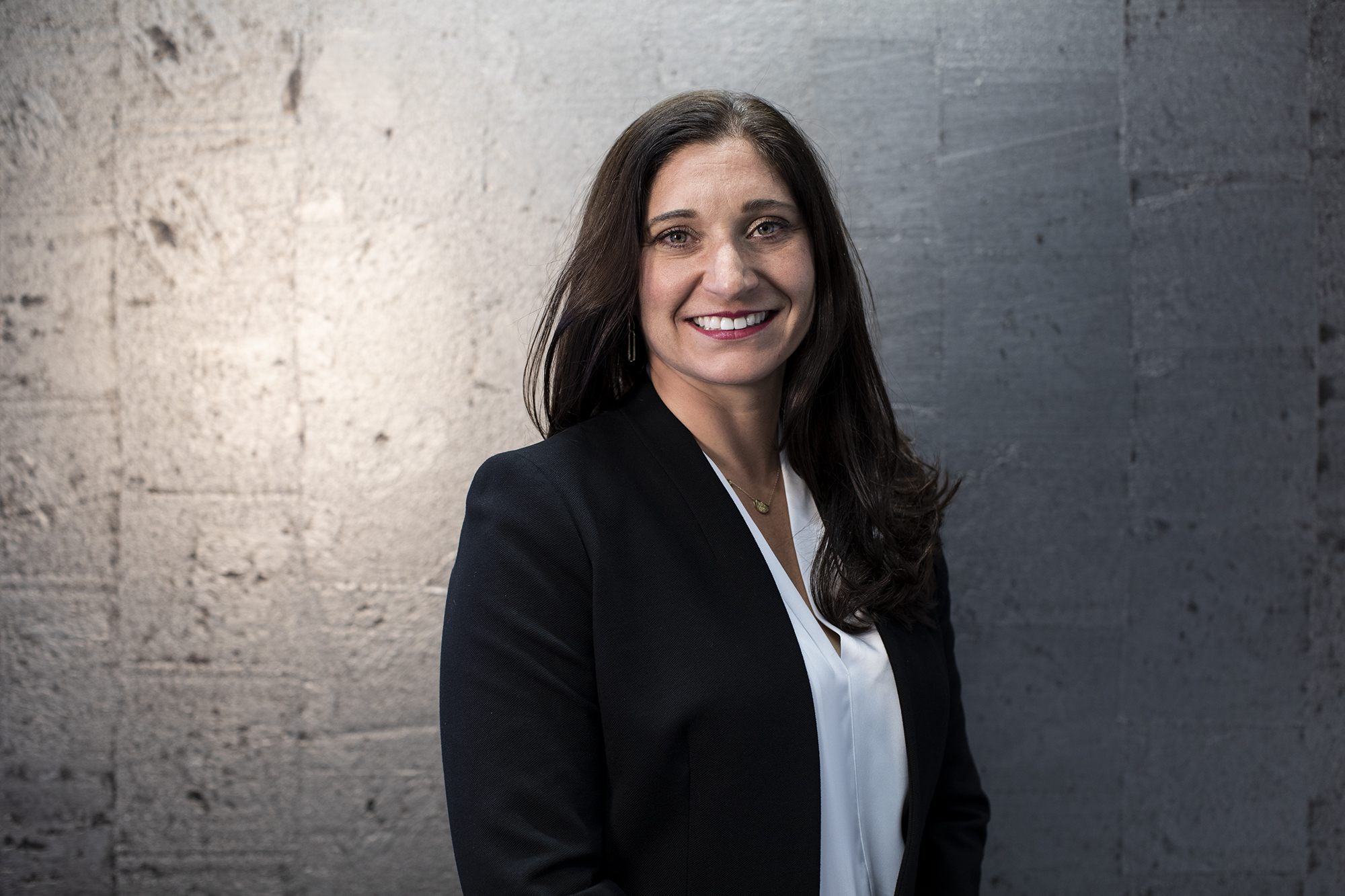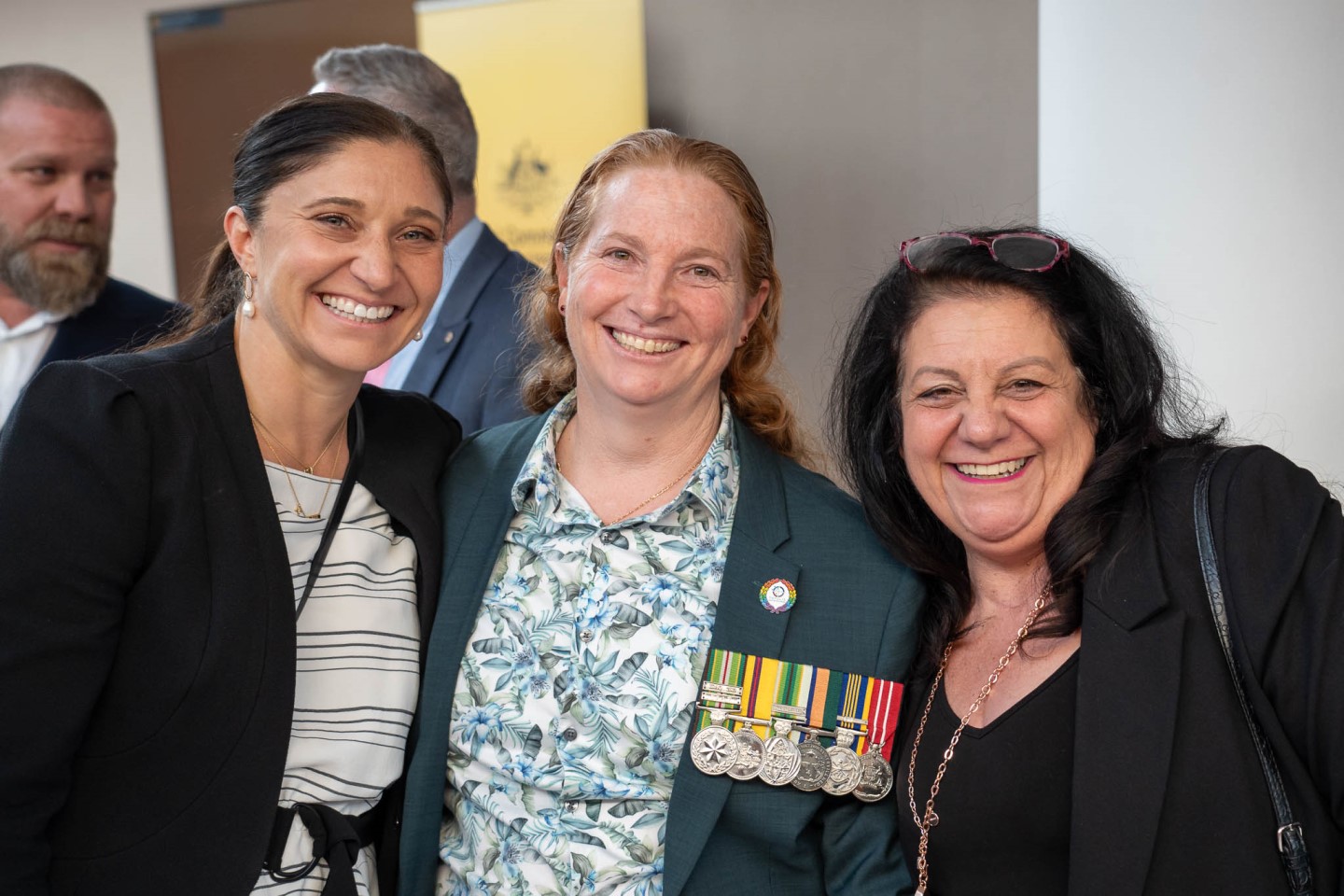Royal Commission underscores needs of families

Gwen Cherne
Veteran Family Advocate Commissioner
It is time for a National Defence and Veteran Family Day
For more than a century, the Repatriation Commissioner has focused on supporting veterans – those who risk their lives for our freedom. But one essential aspect was overlooked: a voice for families, the silent strength beside our veterans.
Since my appointment as the inaugural Veteran Family Advocate Commissioner 4 years ago, I’ve worked to place families, who share in veterans’ struggles, at the centre of our support system. The resilience of these families has inspired me every day.
This role is about more than policy; it’s about making sure families are not left to face life’s toughest moments alone. From the start, my mission has been clear: to amplify families’ voices and ensure their sacrifices are acknowledged. Though they stand quietly when medals are pinned, their contributions are as integral as the service itself. My goal is to ensure that no family stands alone – whether they are adjusting to life after service or grieving the loss of a loved one.
The Royal Commission into Defence and Veteran Suicide has highlighted the heavy challenges families face, especially regarding mental health and the tragedy of suicide. Families experience every deployment and struggle alongside their loved ones. The Royal Commission’s Final Report reinforces what I’ve always known: supporting veterans must mean supporting families. When veterans suffer, families suffer too.
I have seen firsthand how profound the impact of suicide is on families, often leaving them to navigate complex, fragmented systems with little guidance. In moments like these – when a mother is trying to understand her son’s service history after a tragic loss – it becomes painfully clear that we need a support system that is transparent, compassionate, and trauma-informed. No family should ever feel isolated, lost, or abandoned by the systems meant to support them.
One of the Royal Commission’s most urgent findings is the need for postvention support – the care provided to families after a loved one’s suicide. Suicide’s impact ripples beyond immediate family, affecting entire communities. Families need more than resources; they need understanding and continuous care. This emphasis on postvention aligns with my advocacy for a compassionate framework to help families heal and thrive.
The Royal Commission’s report also identifies barriers families face in accessing support. Information is often inconsistent, and the claims process can be overwhelming, particularly for those already dealing with trauma, mental health struggles, or the aftermath of a suicide. Simplifying these processes is essential – not just for veterans but for families who rely on these entitlements for stability. These are not just administrative changes; they are life-changing reforms that can ease the burden on families.
Better data and research are also crucial to understanding the unique needs of veteran families. Chapter 29 of the report calls for the use of comprehensive datasets, such as the Person Level Integrated Data Asset, the Household, Income and Labour Dynamics in Australia Survey, and Australian Bureau of Statistics data, to provide a clearer picture of who these families are and how best to support them. This insight will help tailor policies that address the needs of veterans and families at every stage.
As we recognise these sacrifices, I believe it’s time for national acknowledgment. War Widows Day, currently recognised in some states and territories, should be a National Day to honour those who have lost a spouse in service. War widows and widowers bear an irreplaceable loss, and their grief and resilience deserve national recognition.
However, it does not encompass the grief carried by parents, siblings, and others who have lost a child, brother, or sister. This is why I am advocating for a National Defence and Veteran Family Day – an inclusive day to honour all family members who support veterans through every challenge and who, in some cases, endure the deep pain of loss. These families are the backbone of our military community, deserving of both our gratitude and practical support.
We have seen some progress in education and employment support for Defence families. Advocating for a Defence and Veteran Family Identifier on school enrolment forms will ensure that veterans’ children receive support during critical educational moments. These children often carry unseen burdens, and by recognising their needs, we help them thrive despite challenges at home.
Employment programs, such as the pathways pilot for Defence and veteran partners in Townsville, are also giving families opportunities to build stable careers. These initiatives go beyond job placement; they aim to restore dignity and economic stability to families frequently uprooted from the workforce.
The Royal Commission’s findings provide a foundation for understanding the challenges faced by veteran families. However, while these findings shed light on critical issues, implementing and funding the recommendations requires ongoing advocacy and commitment. The Government’s response is the starting line and provides valuable guidance for the path forward in supporting families.
Reflecting on my time as Commissioner, I feel pride and a strong sense of urgency. We have made progress, but there is still much more to do. Together, we can ensure every veteran and family feels supported, recognised, and valued – not just with words, but through lasting action. And together, we can build a future where no family faces these challenges alone.

At the launch of the Royal Commission’s Final Report with Rachael Cosgrove (middle) and Lidia Hall
